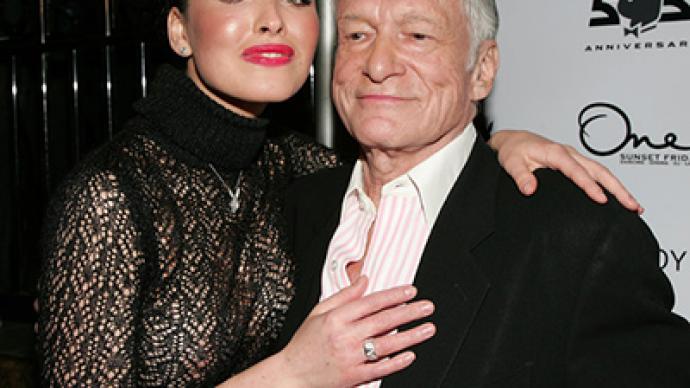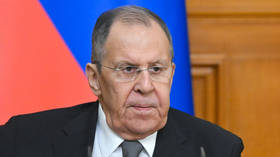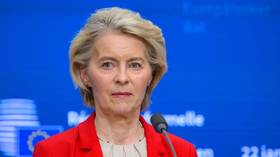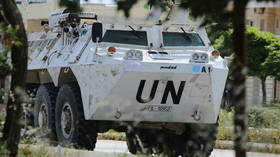In the land of “spoiled playboys,” does Russia need a bachelor tax?

According to latest census data, the population of the largest landmass in the world dwindled by more than 2.2 million, while the number of females outnumber the men by almost 2-to-1. Should Russia's bachelor class be held accountable?
The precipitous decline of the Russian population, which went from 145 million in 2002 to 142 million today, represents a 1.6 percent drop, or over 2 million people. Or to put the situation in more dramatic terms, approximately equivalent to the entire population of Latvia.The reason for the reduction is known by demographers as "natural decrease," which means that more people are dying than are being born. Pretty straightforward.Meanwhile, according to the chief of Russian Statistics Service (Rosstat), Alexander Surinov, the population decline has occurred against a background of migration growth. In other words, if it were not for the influx of immigrants, Russia’s demographics picture would be even worse. The Russian census also revealed a disturbing differential between the sexes. There are 66.2 million men and 76.7 million women (46.3 percent and 53.7 percent respectively). The gap in comparison with 2002 increased slightly (then the ratio was 46.6 percent versus 53.4 percent). As Surinov explained, this is related to the high rate of premature deaths of the males, which, we may surmise, may be at least partially due to the stress of maintaining more than one sexual dalliance at once (In Spain, for example, the authorities explained increased incidences of heart attacks among the male population as due to the stress of tending to their mistresses during Siesta time, as opposed to relaxing).Welcome to Russia’s Playboy MansionIf Russia were a nightclub, the management would probably be very happy. After all, the females outnumber the men by a ratio of almost two-to-one, while what’s left of the male clientele has more than enough money to burn on the raw essentials of a good time: alcohol, cigarettes, prophylactics against sexually transmittable diseases, and other associated paraphernalia.The problem, of course, is that Russia is not a disco. It is a nuclear superpower, the largest country in the world, with a lot of Army boots to fill. Yet it hosts a population that ranks just ninth in the world, which is less than half the total amount of the United States with its 311 million diverse souls. Meanwhile, if you reside in a large Russian city (like 73.7 percent of the population does), chances are it doesn’t seem like the population is declining precipitously. In fact, Moscow registered over 10 percent more people than eight years ago, with a population of 11.514 million. The second largest city – St Petersburg – is home to 4.818 million.Meanwhile, the Russian capital, which continues to attract a horde of businessmen, is home to the greatest number of billionaires in the world. “Despite all the squabbling between New York and London for bragging rights, neither is actually home to the largest number of billionaires,” wrote Forbes magazine. “That honor belongs to Moscow.”The Russian capital is now home to 79 of Russia's billionaires, more than any other city in the world.“The number of billionaires in Russia grew to 101 from 62 last year,” Forbes said in its annual list of the world's richest people, “and accounts for a third of Europe's 300 billionaires, and 15 of the world's 100 richest people, more than all the other so-called BRIC countries combined (Brazil, Russia, India and China) and more than Saudi Arabia.”Needless to say, Russia is not hurting for cash, and the wealth is not just clustered around the mega-wealthy. Although the rich Russians cannot be expected to increase the population all by themselves (as much as they might want to try), the question remains: how does Russia translate all of that wealth into population growth? Some attempts at boosting baby productionIn 2000, Russia's outspoken ultranationalist politician Vladimir Zhirinovsky proposed introducing polygamy as a way to get the country's demographic crisis back to normal. Yes, the leader of the Liberal Democratic Party proposed Russia’s Family Code be amended so that the males could take up to five wives. More wives, Zhirinovsky reasoned, would translate into more babies, and thus increase Russia's dwindling population. Somehow, this sounds more like an attempt at increasing hedonism on the part of the male species, as opposed to a real effort to solve the problem. In fact, it sounds like a cynical attempt to turn Russia into the Playboy mansion, where men walk into sushi restaurants with an entire harem at their side. Whatever the case may be, it has been proven by studies conducted in polygamous societies that a husband with several wives and many children, unless he is mega-wealthy, will be forced to spend more of his cash on inferior goods, thus his plentiful offspring will receive mediocre education and medical treatment. After a brief debate in the Russian Duma, Zhirinovsky’s scheme was dismissed.On a crucial side note, it has been reported that over one million abortions take place in Russia annually, which is also another area that needs to be investigated. “Every year 1.2 million Russian women deliberately terminate pregnancy and 30,000 of them become sterile, many from the estimated 180,000 illegal abortions,” RIA Novosti reported one year ago. “Russian law permits abortions up to the 12th week of pregnancy. If the future mother is suffering from tuberculosis or mental illness she is permitted to terminate a pregnancy later than 12 weeks.”The article added that some clinics even offered abortion discounts on International Women’s Day, a popular Russian holiday.Meanwhile, the number of abortions in Russia is almost equal to the number of babies born every year. According to data provided by the Russian Health Ministry, in 2008 there were 1.7 million births in Russia and 1.2 million abortions.Another incentive put forward by the federal government is to use non-cash “maternity capital” to pay for certain social services.Use of maternity capital to pay mortgages must become the norm starting in 2011, Russian President Dmitry Medvedev said in his annual address to the Federal Assembly."I believe that this norm must be permanent starting next year," Medvedev said.Maternity capital refers to a federal subsidy that is transferred to the Russian Federation Pension Fund budget in accordance with the Federal Law on Additional Measures of State Support for Families with Children, which came into force on January 1, 2007.In 2006, former-President Putin put forward a suggestion to boost the birth rate in the country with the help of the so-called maternity allowance in the amount of 250,000 rubles (about $10,000). “When a woman gives birth to her second child, she often loses her professional skills,” Putin said. “If the state shows concern about the national birth rate, it must support a woman who makes a decision to have a second child.” What about the brain (and body) drain?One little discussed reason for Russia’s population decline might be connected with the so-called “brain drain,” which sees people heading westward in search of employment opportunities. Although this trend is said to be tapering off as the Russian economy strengthens, it still seems to be having a drag on population growth.I asked two young professional Russians for their opinions as to why their peers were leaving the country.The first, Katia, a twenty-something fashion designer who said she personally knows “about a dozen girls” who took to their heels, said women are tired of trying to please “spoiled Russian playboys.”“They are just tired of wasting their lives trying to pamper and please spoiled Russian playboys who are too indecisive and scared of making decisions ‘if they actually need it,’” she said. “Russian women just want to relax and feel like weak women again, which they think the foreign men, who are tired of their emancipated women, will provide.”The other interviewee, Kirill, a computer programmer with a Russian startup, chose not to place too much emphasis on the “brain drain” theory, instead arguing that the Russians have a more of a “Swedish approach” to childrearing.“In the Soviet times, people understood that the state would take care of their basic needs, so there was no need to have children who would take care of them in their old age,” he said. Kirill added that even in Soviet times, the bulk of the population increases occurred not in Russia proper, but rather in the Central Asian republics.“This trend is continuing today,” he said, “with Russians opting for fewer children.”Tax the Bachelors?So should Russia declare a national emergency, confiscate all the females’ passports, and close the exit gates? Or should Russia reintroduce tax legislation leftover from the Stalin period, which imposed a 6 percent “bachelor tax” on men between the ages of 25 to 50? Would it make a difference?The so-called childlessness tax, or bachelor tax (incidentally, in 18 B.C. Julius Caesar introduced his own “bachelor tax” in an attempt to get Rome’s hedonistic aristocracy off the couch and into the bedroom), remained in force until the dissolution of the Soviet Union in 1991. The Ministry of Health and Deputy Chairman of the State Duma Committee for Health Protection Nikolai Gerasimenko proposed reinstating the tax in Russia in 2006.Enforced from 1941–1990, the tax affected most childless men from 25 to 50 years of age (as well as most childless married women from 20 to 45 years of age). The tax docked 6 percent of the childless person's wages, but it provided certain exceptions: those with children that died during World War II were exempt from the tax, as well as war heroes. Students were also excluded from the tax, and others whose earnings were meager. Individuals who were medically ineligible to give birth were also exempt to this tax. It has been said that many single men fraudulently escaped the tax by providing fake medical documentation.In 1991, the tax was changed to no longer apply to women, and in 1992, the tax was revoked due to the dissolution of the Soviet Union.During the Soviet period, Russia had a higher fertility rate than it did in the years after the fall of the Soviet Union, prompting some Russian leaders to propose bringing back the tax on childlessness.“It is about time we should think about [reintroducing] a childlessness tax. If you do not want to think about your social duty for your fatherland than you will have to pay for it,” Gerasimenko said. Whether such a tax would jumpstart Russia’s demographic crisis is a difficult question, but at this point it certainly would not hurt to try.Robert Bridge, RT














